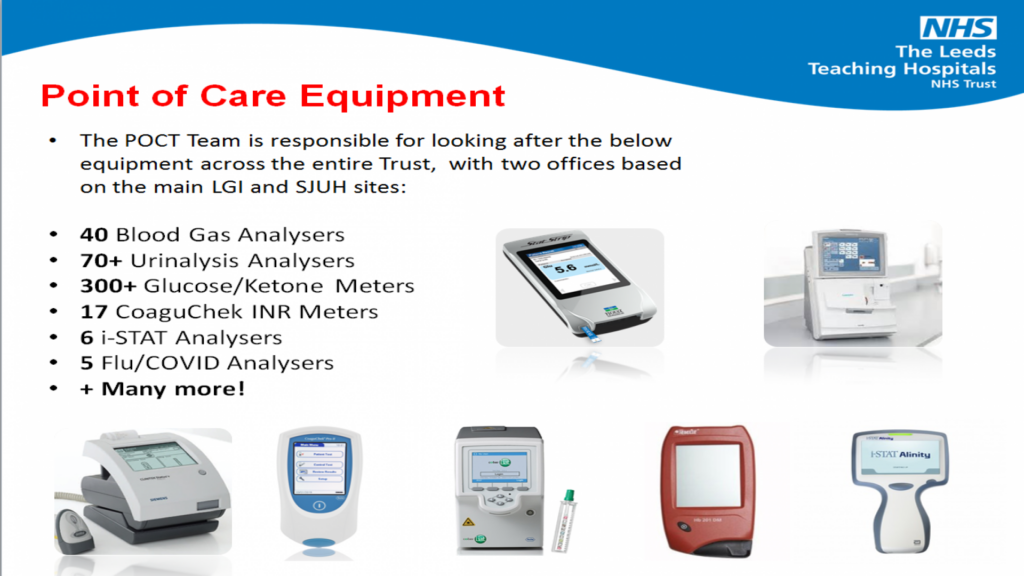What is Point of Care Testing?
Point-of-care testing (POCT) is defined as medical testing at or near the site of patient care by specially trained healthcare (non-laboratory) professionals. These tests typically involve blood and urine testing. The goal of POCT is to collect the specimen and obtain accurate results in a very short period of time at or near the location of the patient.
POCT can be carried out in a wide range of settings, in primary care, the community and secondary care, supporting the delivery of the right care in the right place at the right time.
What are the advantages of POCT?
The main aim, and benefit, of POCT is to bring the test conveniently and immediately to the patient. This increases the likelihood that the physician and care team will receive the results quicker, enabling clinicians to support the timely diagnosis, monitoring and treatment of patients.
What are the disadvantages of POCT?
There can be many limitations associated with POCT, particularly if correct analytical procedures are not adhered to. It is essential that POCT is undertaken correctly to ensure accurate and reliable results. Poor quality of analysis, poor record keeping, a lack of report interpretation, failure to detect abnormal results, unauthorised processing, and inappropriate testing are critical areas that directly affect patient results and care.
Furthermore, POCT devices are unable to detect lipaemic, icteric and haemolysed samples.
Result quality is often directly related to sample quality; a poor sample or incorrect analytical technique will yield poor results. For example, poor blood gas sample preparation and handling can often result in incorrect blood gas, pH, haemoglobin and potassium results as a consequence of room air contamination, settling of the cells and haemolysis, respectively.
Put simply, an incorrect test result can result in the wrong treatment and potentially life threatening consequences.
POCT Service Overview
The Point-of-Care Testing services are based at the LGI and SJUH laboratory sites, but clinical services are provided at all Trust sites. This service includes support for staff training and routine maintenance of multiple analytical systems.

The main sites include:
- Leeds General Infirmary
- St James’ University Hospital
- Chapel Allerton Hospital
- Seacroft Hospital
- Wharfedale Hospital
In addition to hospital sites, the service covers the routine maintenance of glucose meters at Satellite units in the community.
These include:
- Dewsbury Hospital Renal Unit
- Calderdale Hospital Renal Unit
- Huddersfield Royal Infirmary Renal Unit
- Pontefract General Infirmary Renal Unit
- Beeston Medical Centre Dialysis Unit
- Dental Teaching Unit at Beeston Hill Community Health Centre
- St Gemma’s Hospice
- Wheatfields Hospice
The POCT service also covers the routine maintenance of DCA Vantage HbA1c analysers in the Bradford Community GP Services.
The POCT team is responsible for the running and distribution of EQA schemes for all POCT equipment within the hospital, community and satellite units.
Some EQA testing is carried out by the POCT team, others are distributed to the departments and must be analysed by any trained operators.